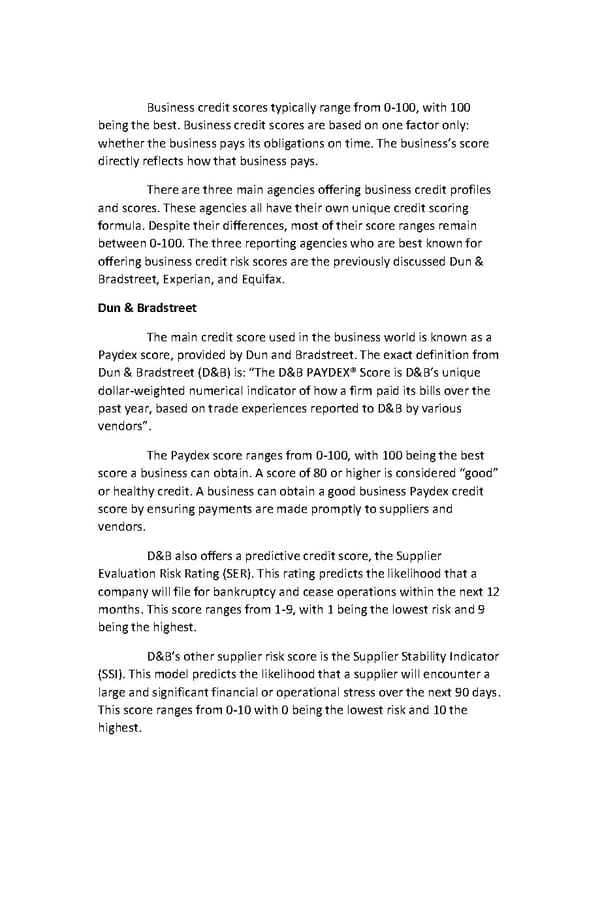Business credit scores typically range from 0-100, with 100 being the best. Business credit scores are based on one factor only: whether the business pays its obligations on time. The business’s score directly reflects how that business pays. There are three main agencies offering business credit profiles and scores. These agencies all have their own unique credit scoring formula. Despite their differences, most of their score ranges remain between 0-100. The three reporting agencies who are best known for offering business credit risk scores are the previously discussed Dun & Bradstreet, Experian, and Equifax. Dun & Bradstreet The main credit score used in the business world is known as a Paydex score, provided by Dun and Bradstreet. The exact definition from Dun & Bradstreet (D&B) is: “The D&B PAYDEX® Score is D&B’s unique dollar-weighted numerical indicator of how a firm paid its bills over the past year, based on trade experiences reported to D&B by various vendors”. The Paydex score ranges from 0-100, with 100 being the best score a business can obtain. A score of 80 or higher is considered “good” or healthy credit. A business can obtain a good business Paydex credit score by ensuring payments are made promptly to suppliers and vendors. D&B also offers a predictive credit score, the Supplier Evaluation Risk Rating (SER). This rating predicts the likelihood that a company will file for bankruptcy and cease operations within the next 12 months. This score ranges from 1-9, with 1 being the lowest risk and 9 being the highest. D&B’s other supplier risk score is the Supplier Stability Indicator (SSI). This model predicts the likelihood that a supplier will encounter a large and significant financial or operational stress over the next 90 days. This score ranges from 0-10 with 0 being the lowest risk and 10 the highest.
 Mastering Business Credit (Preview) Page 10 Page 12
Mastering Business Credit (Preview) Page 10 Page 12